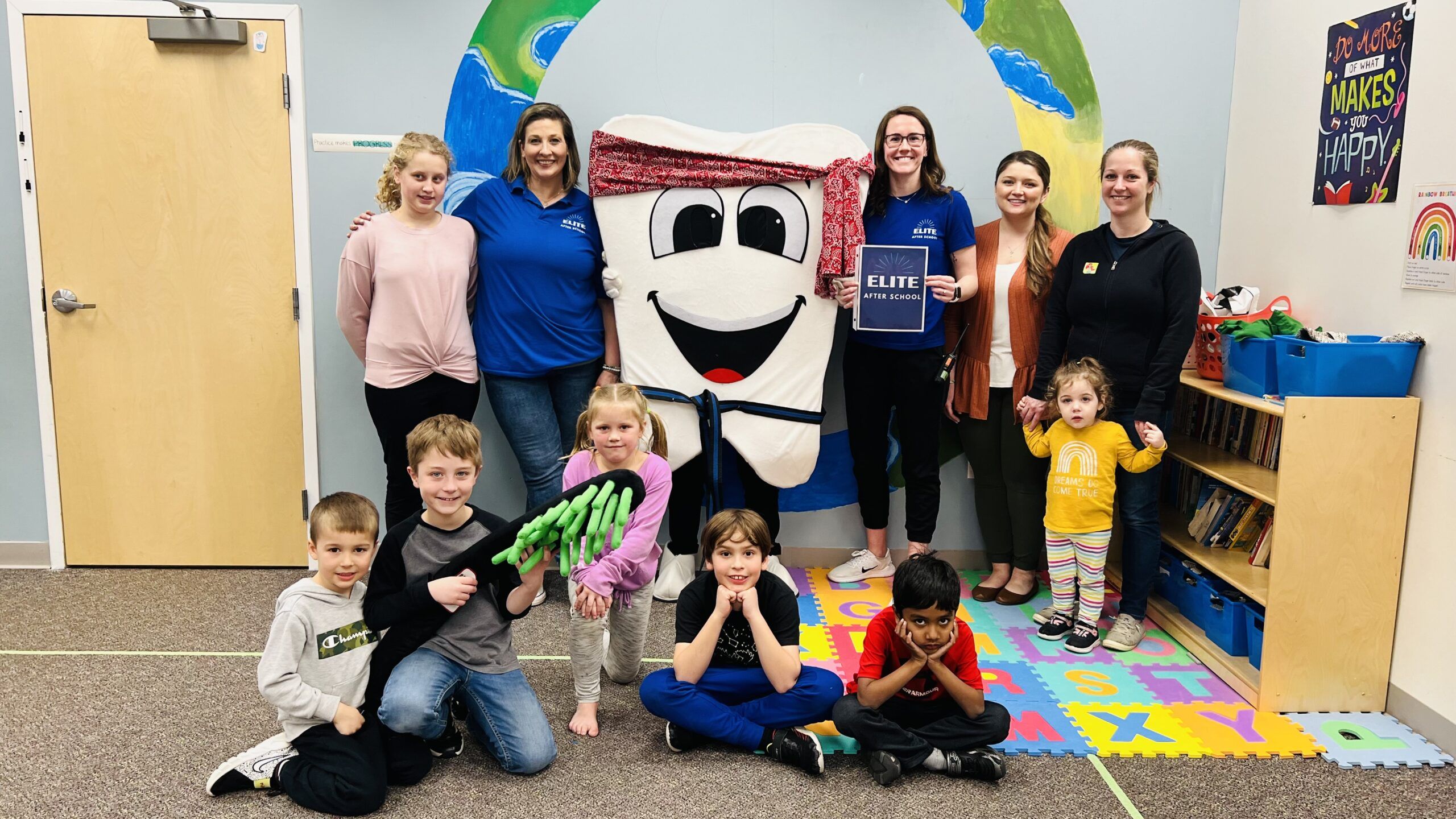Specialized Dental Care for the Entire Family!
Pediatric Dental Care for Happy, Healthy Smiles
Lindner Dental Associates is committed to providing quality dental care for the entire family! Pediatric dentistry is different from traditional dentistry as our dentists specialize in handling and caring for baby teeth. Our team is here to create smiles, one tiny tooth at a time!
Our mission at Lindner Dental Associates is simple — we love children, and that sentiment guides our hands. Each of us recognizes the incomparable precious bond you have with your children. Therefore, we respect and value the trust you place in us in caring for them. While reactions and results aren’t guaranteed, our sincere best efforts are absolutely assured.
Real Parents, Real Reviews
 Always an excellent experience. They were able to get me in immediately for an urgent issue. The staff and doctors are always helpful and caring.Love the staff and the care they show. They took the time to explain the work I need done and the steps we should take to complete a good overall mouth plan! Love them and they are so good with kids too..Dr. Trinidad and his assistant Brittany were fabulous with my adult daughter with special needs. They were kind, immensely patient, and super sweet. Everyone we met in the office was pleasant and professional. I would highly recommend this office to anyone and especially those who need a little extra help. They deserve more than 5 stars in my book!Lindner Dental has been our familes
Always an excellent experience. They were able to get me in immediately for an urgent issue. The staff and doctors are always helpful and caring.Love the staff and the care they show. They took the time to explain the work I need done and the steps we should take to complete a good overall mouth plan! Love them and they are so good with kids too..Dr. Trinidad and his assistant Brittany were fabulous with my adult daughter with special needs. They were kind, immensely patient, and super sweet. Everyone we met in the office was pleasant and professional. I would highly recommend this office to anyone and especially those who need a little extra help. They deserve more than 5 stars in my book!Lindner Dental has been our familes
go to dental office since they first came to Bedford. They are awesome.
1/7/2021
They have done a wonderful job dealing with the pandemic and keeping patients and staff safe while taking care of all our families Dental needs.
go to dental office since they first came to Bedford. They are awesome.
1/7/2021
They have done a wonderful job dealing with the pandemic and keeping patients and staff safe while taking care of all our families Dental needs.
Our Pediatric Dental Services for Little Smiles
Children’s dental care focuses on smaller teeth and understanding the way younger mouths grow and change. Our pediatric specialists focus on early prevention, gentle treatments and education to lay the groundwork for a lifetime of good oral health. We offer various pediatric treatments to support healthy development, prevent issues and gently address any problems that arise. This includes:

Cleanings and Exams for Kids
Routine care is important for your child, especially at a young age! Our team offers attentive dental care that teaches them the importance of good oral health.
Restorative and Cosmetic Dentistry for Kids
Even with great care, cavities and dental issues happen — and when they do, we’re here to help. We provide gentle treatments for common problems, like cavities or chipped teeth, using kid-friendly techniques to minimize discomfort. Our pediatric dental team is here to give the restorative or cosmetic dental care they need.
Oral Surgery for Kids
Sometimes, a child’s dental health may require a bit more care. Our experienced pediatric surgery team provides tooth extractions and minor surgical procedures with a gentle, child-centered approach. Our experts have calm, patient-focused care to ease anxiety and make the experience as smooth as it can be.
Orthodontic Services for Kids
It’s common for your child to need braces in their lifetime. Our pediatric dentists work with our orthodontists to find them a customized treatment plan. This includes early orthodontic evaluations to help catch potential alignment issues before they worsen.
Why Choose a Pediatric Dentist in Bedford, NH?
Choosing a pediatric dentist means choosing specialized care designed just for kids. This means:
- Advanced training: Pediatric dental specialists undergo at least two additional years of training after dental school. This specialized training emphasizes clinical skills and behavior management for infants, children and adolescents, including those with special needs.
- Behavioral expertise: Young children, preteens and teenagers each require tailored approaches to address their unique behavioral needs, support their dental growth and development, and help prevent future dental issues. A pediatric dentist is uniquely qualified to provide this specialized care.
- Preventive focus: Good oral health is an important part of overall health. As your child’s dental practice, we have the opportunity to establish preventive habits that will help keep your child free from dental and oral diseases.
From the moment you walk into the practice, your child will be embraced in our warm, caring and child-friendly environment.
Keep Those Tiny Teeth Shining Bright at Our Pediatrics Dental Office!
Prioritizing your child’s dental health today sets the foundation for a lifetime of happy smiles. At Lindner Dental Associates, we’re not just caring for teeth — we’re building confidence, trust and positive associations with dental health. As a leading dentist for kids, we’re here to provide expert care for your children and will support them in every step of their dental journey. Schedule an appointment today or call us at (833) 522-1617 to begin your dental care journey.
FAQ About Pediatric Dentistry
A pediatric dentist takes extra courses to specialize and ensure your child receives the gentle dental care they deserve. These courses are two additional years on top of their undergrad and dental school years. Pediatric dentists focus only on baby teeth (or young children with some baby and some adult teeth), while a general dentist focuses more on care for adult patients. Pediatric dentists also try to make their appointments more fun, welcoming, and outgoing to keep their young patients content. Like a pediatrician, a pediatric dentist caters care to the child and has the training to do this effectively.
The age for pediatric dentistry can vary depending on the patient, and it technically doesn’t need to “stop” immediately at a certain age. Pediatric dentistry is commonly for children starting at six months old and up to 18 years of age. Pediatric dentists typically see patients who still have baby teeth or a mix of baby and adult teeth. Some pediatric dentists may also continue to see special needs adults if preferred.
If you are wondering why your child should see a pediatric dentist instead of a general family dentist, it is the skills a pediatric dentist has caring for children and diagnosing problems early. Pediatric dentists specialize in your child’s teeth and take special courses to keep them comfortable. Your child should see a pediatric dentist early to learn to become comfortable with the dentist and discover the benefits of healthy teeth. Pediatric dentists are the experts at providing a warm and welcoming environment for your child while giving them the attentive care they deserve.
Just like adults, children should visit their pediatric dentist every six months for a cleaning and exam. Starting at the early age of 1, young children can get an advantage by starting early and preventing cavities as they get older. Teaching them the importance of good oral health at a young age will set them up for success in the future. Some pediatric dentists suggest setting up appointments every three months to get them familiar with tooth brushing and the dentist environment.
The best pediatric dentist for your child is someone who has experience and knowledge in dealing with a child’s mouth. Baby teeth are a little different than adult teeth, so they are not treated the same. A pediatric dentist who is caring yet provides thorough dental care for your child is the perfect dentist. Learn more about Lindner Dental Associates and why we’re Bedford, NH’s go-to for pediatric dental care!
There may be some obvious and not-so-obvious signs that your child has a toothache. Some obvious signs may include a swollen face, red gums, tooth pain or sensitivity to touch, hot or cold items. Other signs of a children’s toothache would be a fever, fussiness, and tiredness. If you notice any of these signs, be sure to contact your pediatric dentist for an exam.
X-rays are important for children to have because they provide your dentist with a complete exam of the mouth. X-rays go behind the scenes of what your pediatric dentist can see with their eye, so it’s important to ensure your dentist is able to see how your child’s teeth are developing and any potential problems. X-rays are safe and recommended by the American Academy of Pediatric Dentistry to ensure optimal oral health.
At Lindner Dental Associates, we want to help parents give their children the best possible care! Watch the video below to learn which toothbrush is best for your child so you can teach them the importance of brushing their teeth!
At Lindner Dental Associates, we know you want what is best for your child! Watch the video below to learn how safe nitrous oxide can be for your child!
At Lindner Dental Associates, we know the importance of teaching your little ones good brushing & flossing habits! Watch this helpful video for moms with tots!







